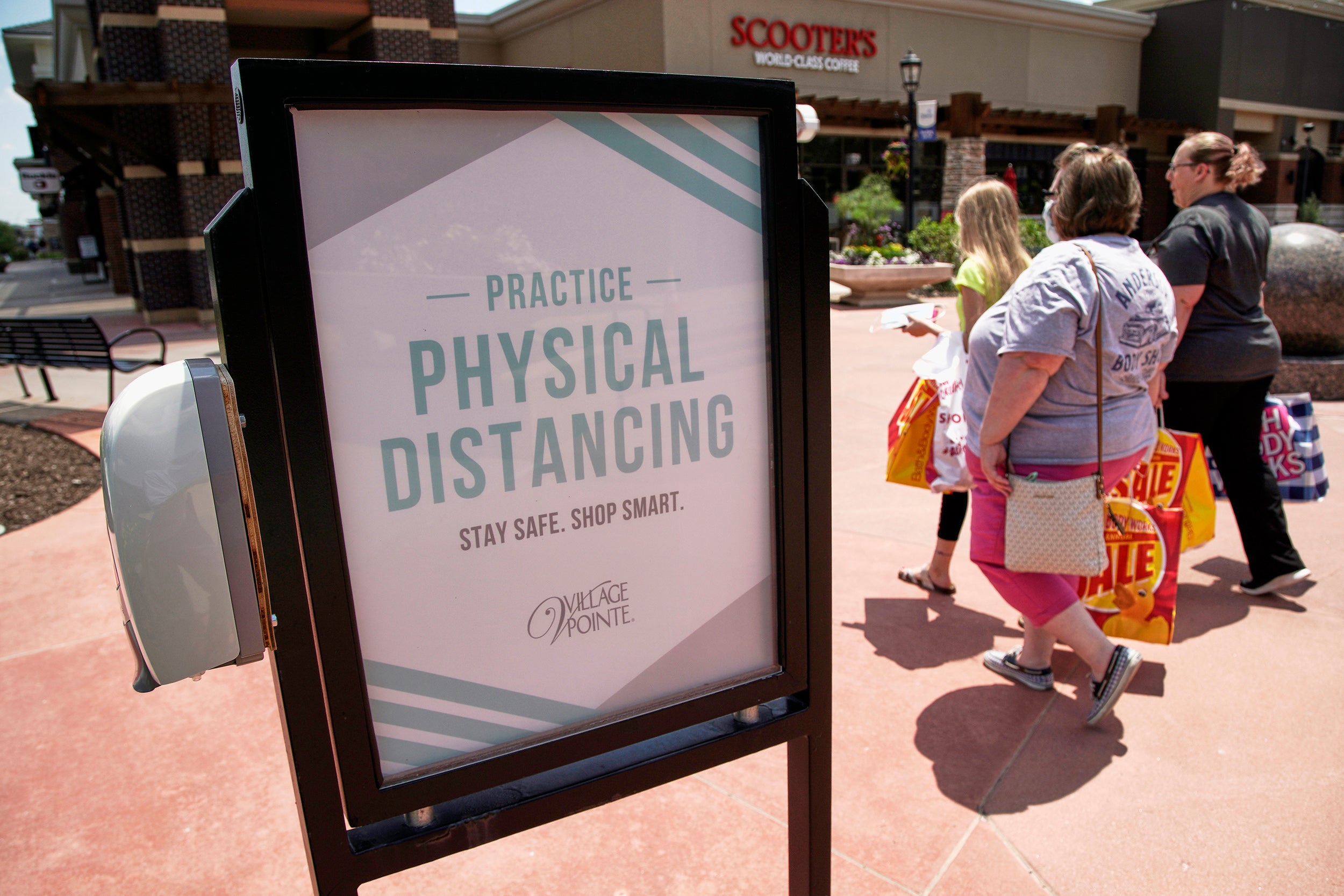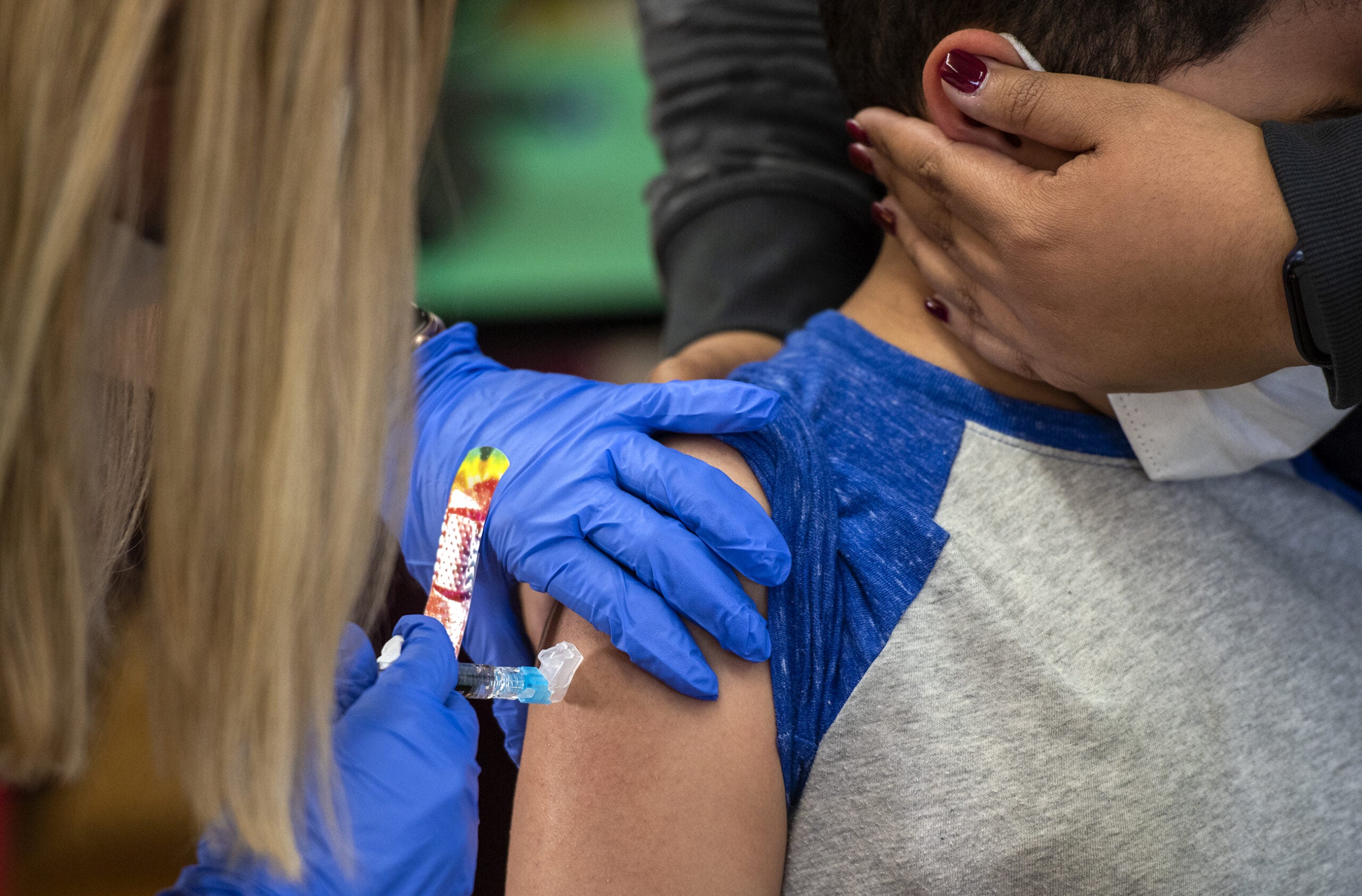There have been 23,454 positive cases of COVID-19 in Wisconsin as of Wednesday, according to the state Department of Health Services. That’s an increase of 256 cases from the day before.
According to health officials, 712 people in Wisconsin have died from COVID-19 as of Wednesday afternoon, with 9 new deaths reported since Tuesday.
DHS reported 423,736 total negative tests for the coronavirus, an increase of 9,406 from Tuesday to Wednesday.
News with a little more humanity
WPR’s “Wisconsin Today” newsletter keeps you connected to the state you love without feeling overwhelmed. No paywall. No agenda. No corporate filter.
As of Wednesday, 75 percent of people who have tested positive for COVID-19 have recovered, according to DHS. Three percent have died.
Wisconsin’s daily testing capacity — based on the availability of test supplies and adequate staffing — has grown from 120 available lab tests in early March to 16,668 as of Tuesday. The number of actual tests reported on Wednesday was 9,622.
An increase in testing is one reason for the increase in the number of positive cases. The percentage of positive tests was 2.6 percent on Wednesday. Positive test rates have mostly hovered between 2 and 3 percent over the past two weeks.
As of Wednesday, Wisconsin was seeing a 14-day downward trajectory in reports of COVID-like cases — a key metric signifying COVID-19 is under control. The department is no longer reporting a downward trajectory of positive tests as a percent of total tests within a 14-day period.
According to DHS, 3,128 people have been hospitalized because of the virus as of Wednesday. That means at least 13 percent of people who have tested positive for the new coronavirus in the state have been hospitalized. DHS officials said they don’t know the hospitalization history of 6,684 people, or 28 percent.
There have been confirmed cases in all 72 of Wisconsin’s counties, though not all cases are currently active.
State Announces COVID-19 Studies
State officials announced plans for two population health studies related to COVID-19 Wednesday. The efforts will “provide researchers and public health experts with a better understanding of where COVID-19 has been and help identify communities that may be at risk for a future outbreaks,” according to a DHS press release.
One study will involve DHS partnering with the University of Wisconsin-Madison’s Survey of the Health of Wisconsin (SHOW) to test for COVID-19 antibodies in people across the state. Antibody testing looks at whether someone has been infected with the coronavirus in the past, whether or not they showed symptoms.
“The goal of this project is not to understand how many people are infected right now, but to understand cumulatively how many people have been infected since the start of the epidemic,” said Dr. Ryan Westergaard, DHS Chief Medical Officer of the bureau of communicable diseases, in a call with reporters.
The other study will test sewage samples from wastewater treatment facilities across the state to look at concentrations of virus genetic material. DHS will partner with UW-Milwaukee and the state Department of Natural resources to carry out the testing.
“Surveillance of wastewater will provide public health officials with the opportunity to identify the magnitude of COVID-19 transmission, circulation within a community, and potentially, early warning detection of outbreaks,” the press release stated.
Dr. Jon Meiman, DHS chief medical officer of the bureau of environmental and occupational health, said the plan is to test large city water systems frequently, and smaller systems sporadically.
Both studies will be paid for by federal funding, Westergaard said.
Wisconsin Public Radio, © Copyright 2026, Board of Regents of the University of Wisconsin System and Wisconsin Educational Communications Board.





